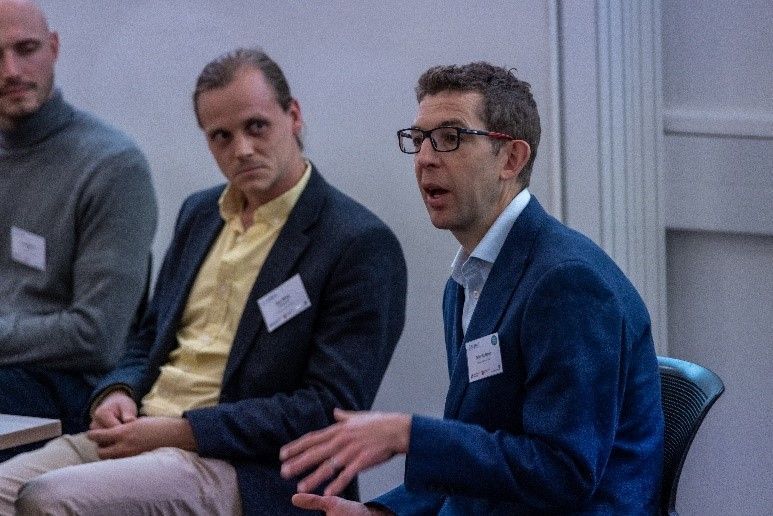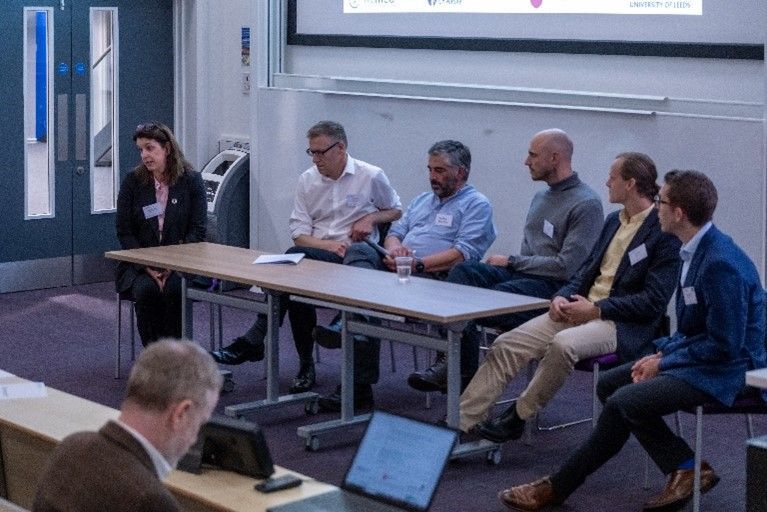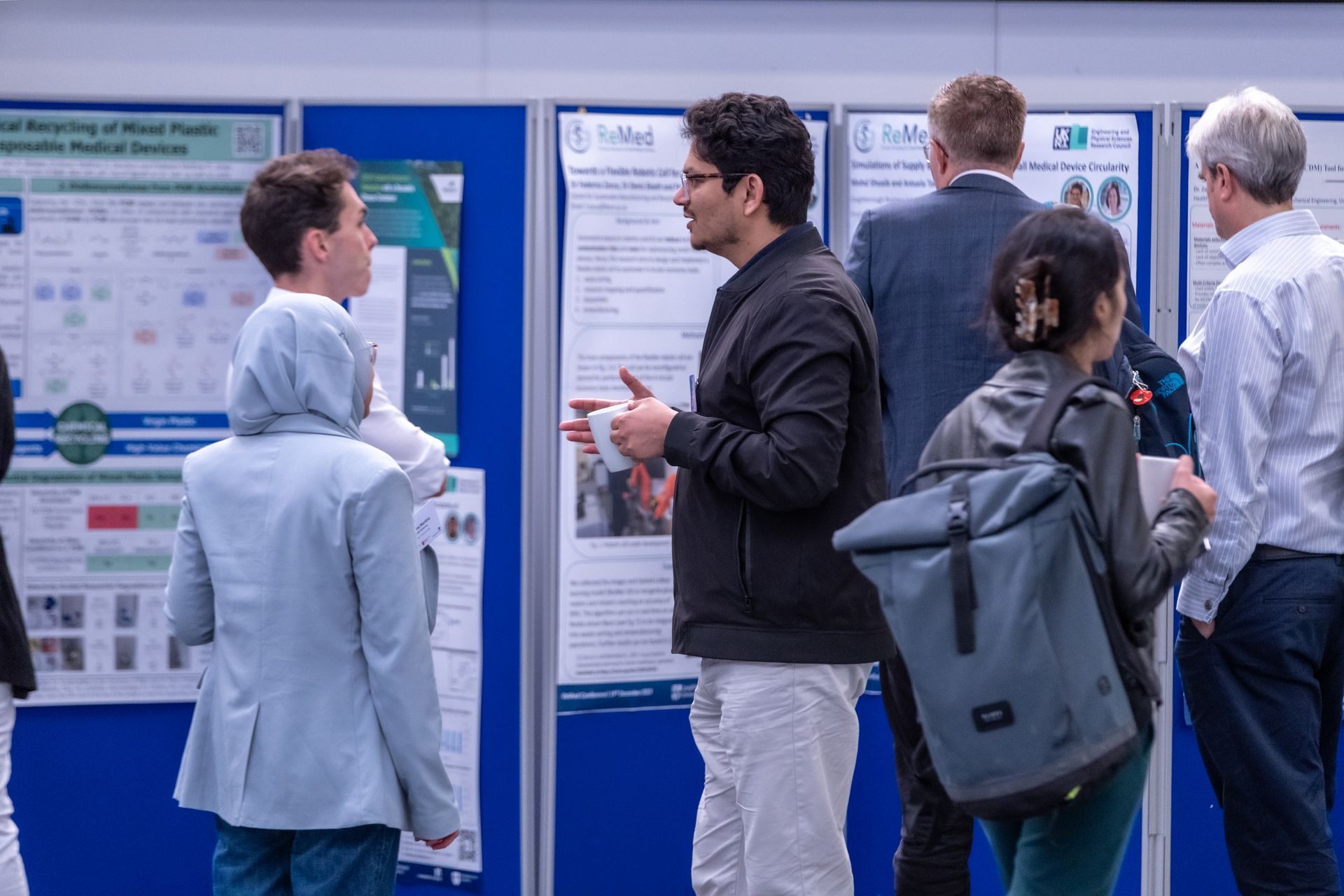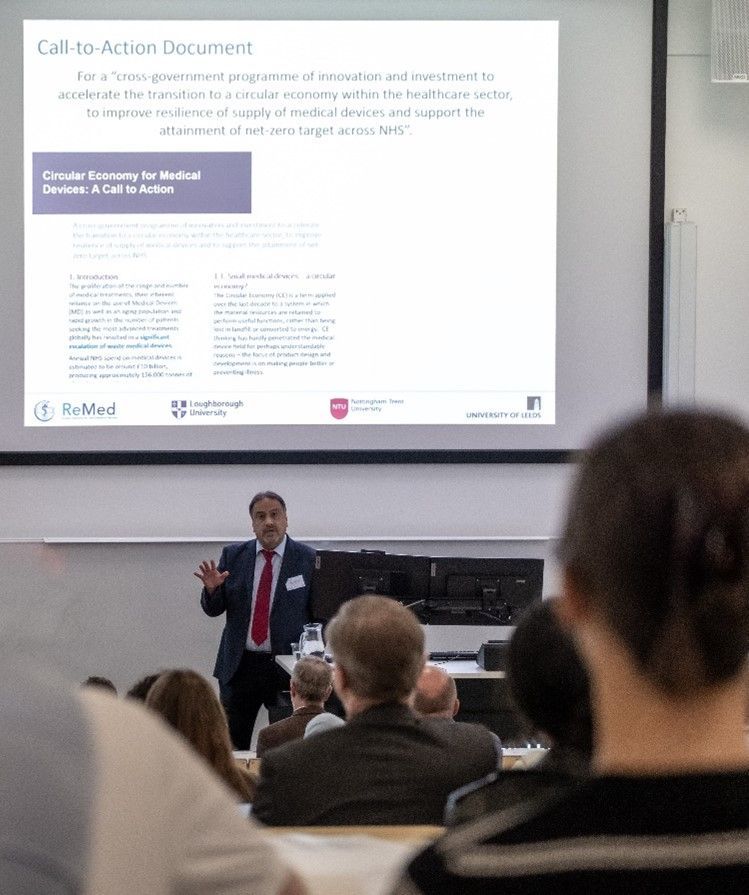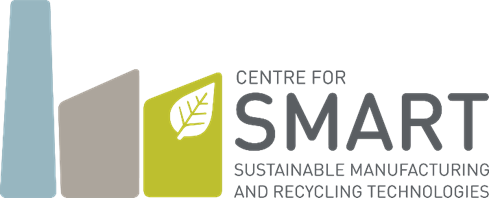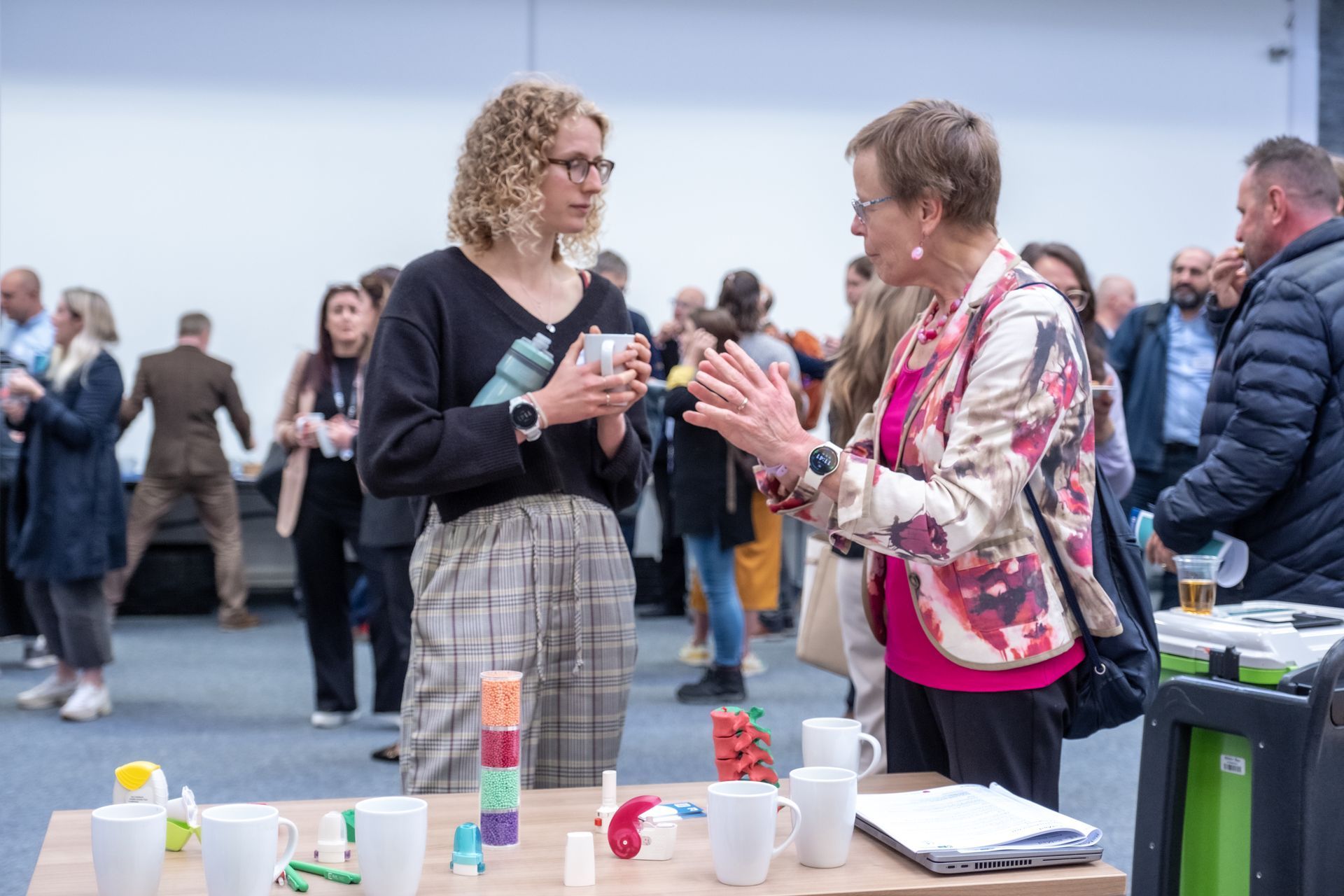
Second ReMed Conference acknowledged as “the most informative event on the path to circular use of medical devices”
The second ReMed Conference took place on 17th September 2024 at Loughborough University.
The conference brought together over 100 delegates working across the value chain of medical devices including: design consultancy, manufacturing, waste management, reprocessing, healthcare providers and academia to discuss the latest developments and future opportunities for the transition to a circular use of these devices. Prof Shahin Rahimifard, Principal Investigator of the ReMed Project opened the conference:
"Since the start of the ReMed Project in September 2022, it is with great excitement that we have observed a rapid growth in national and international initiatives exploring a range of solutions for a transition from linear single use to a circular reuse and/or material recovery from Medical Devices (MD). Due to the inherent nature of MD supply chain, application of Circular Economy (CE) in this sector necessitates the careful considerations for its global dimensions. The complexity in the framework of regulations and standards across various countries, regions and continents provides one of the greatest challenges in adopting CE within the medical industry. In addition, an interdisciplinary, holistic and integrated approach is required to consider the many other challenges involved in product redesign and recertification, new materials upgrade and substitution, SMART digital manufacturing, developing new business models for supply and use as well as novel technologies for recovery and reprocessing of MD. The development of easy-to-use life cycle assessment tools to analyse impacts and support decisions is also seen as a key enabler in the attainment of net-zero targets for which application of CE plays a vital role."
A welcome speech was delivered by Professor Rachel Thomson, Loughborough University Pro Vice-Chancellor and Provost, who talked about the importance of circular economy research as part of the new University strategy “Creating a Better Future together,” which focuses on three themes of climate change and net zero; sport, health and well-being; and vibrant and inclusive community. The PVC reaffirmed:
Three informative keynote presentations were given by:
1) Mr Liam Hogg - Head of Waste and Resources for NHS England - outlining the ‘Future of NHS Waste Strategy’
2) Dr Karen Mayor - Deputy Director for Data, Analysis and Resilience in Medical Technologies at the Department of Health and Social Care – summarising the main outcomes from ‘Design for Life’ initiatives
3) Mrs Lena Cordie-Bancroft - Sector Lead for Medical Devices at British Standards Institute, highlighting the paramount importance of ‘Standards in Guiding Healthcare Industry to Circular Practices’.
The rest of the day was divided into 3 thematic sessions, representative of the workstreams being investigated within ReMed project; namely Automated reprocessing of medical devices; Operational changes and health economics; and Circular design and sustainable materials for MD. In each thematic session, talks were given by the ReMed researchers who presented progress within the ReMed project, and we were also privileged to have excellent guest speakers for each session, bringing to life real-world examples of sustainability within the healthcare sector.
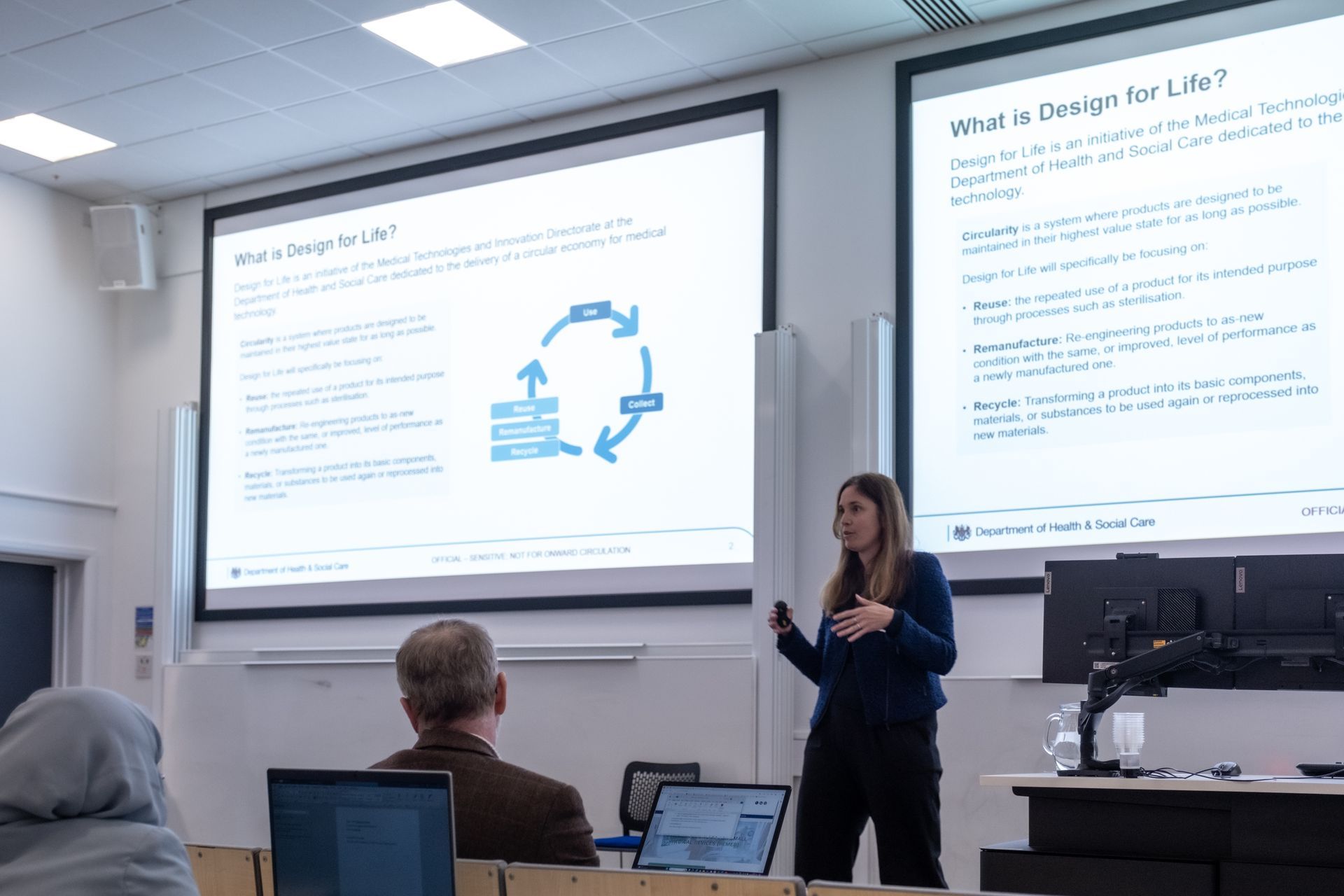
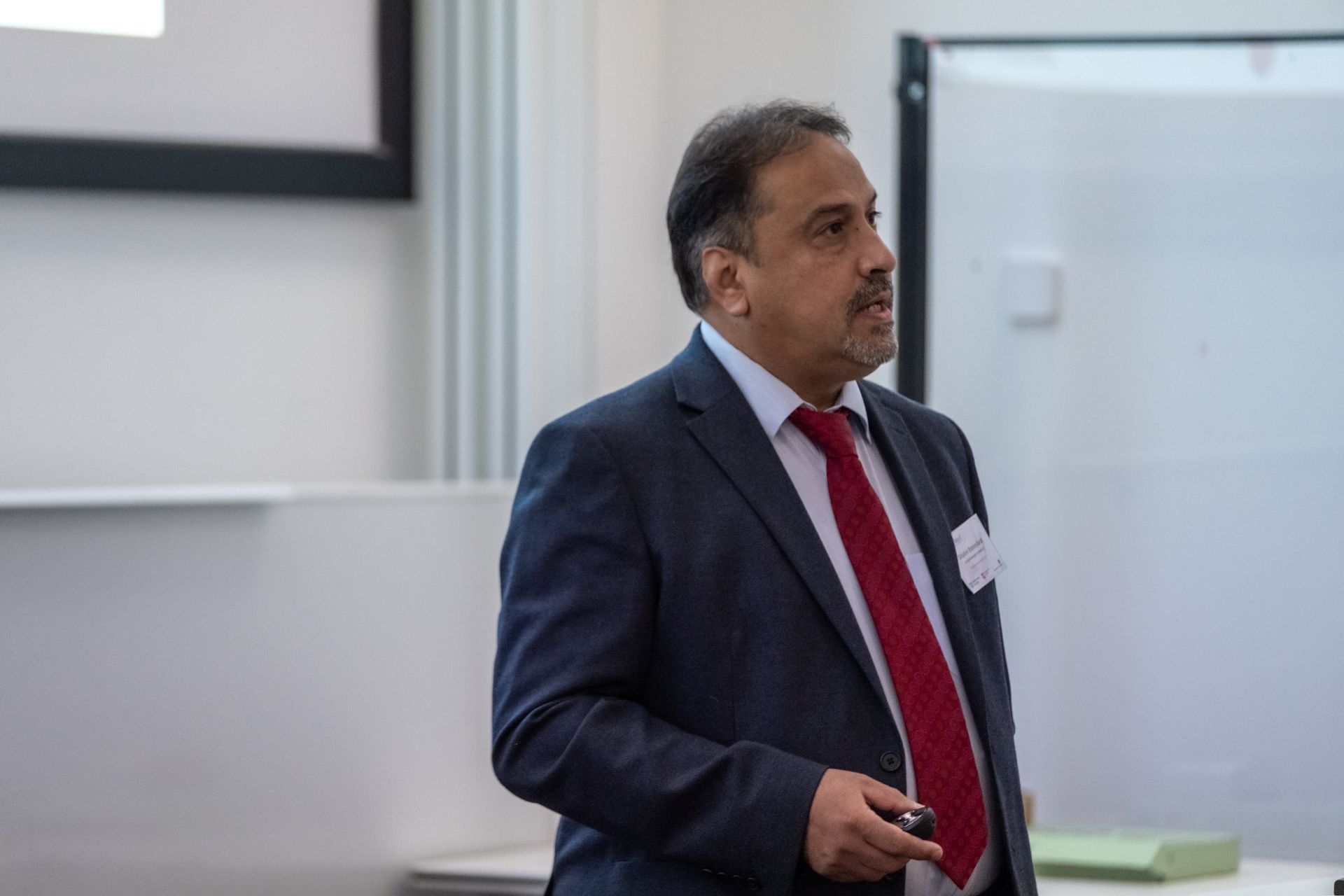
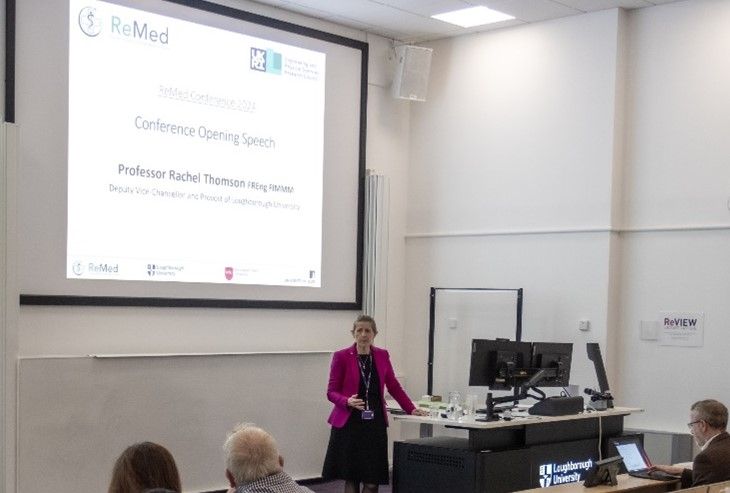
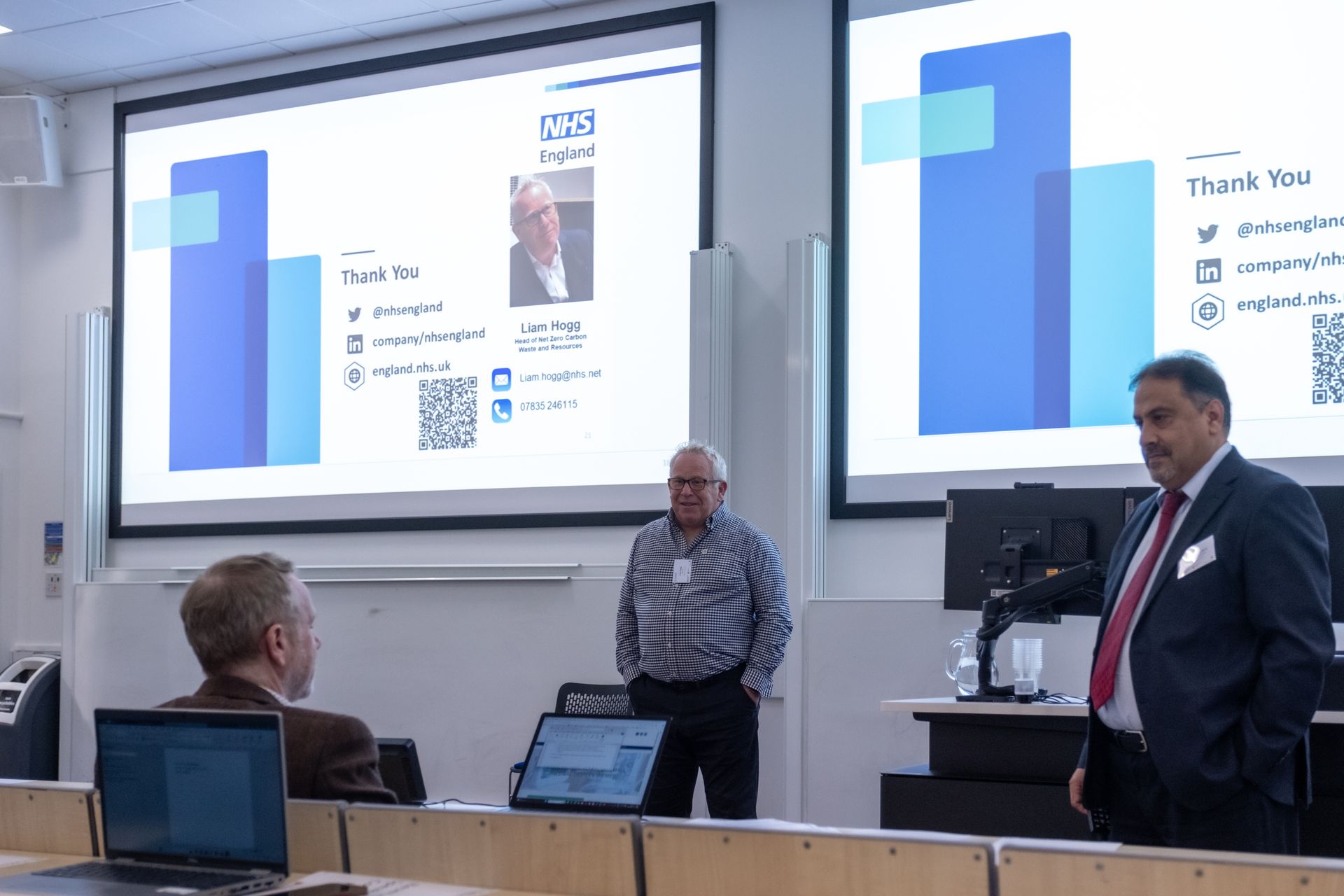
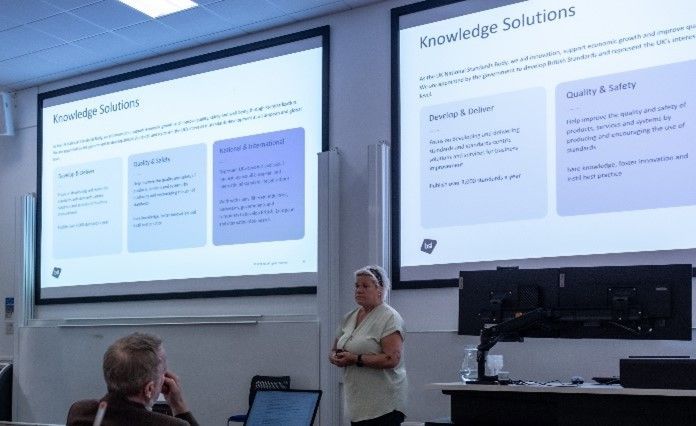
“The ReMed conference seems to get better each year and keeps on evolving, I hope you will have another”
Tanja Dicker (ELIX Polymers)
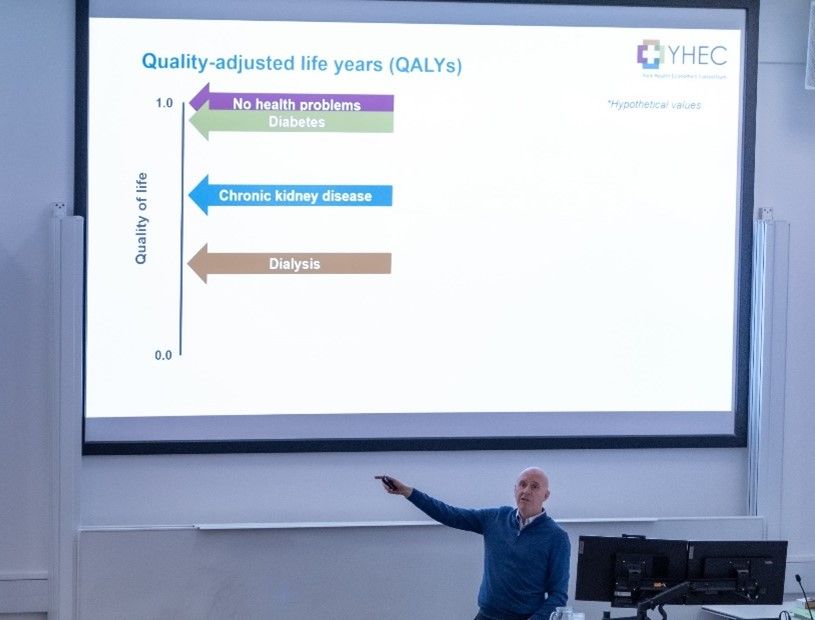
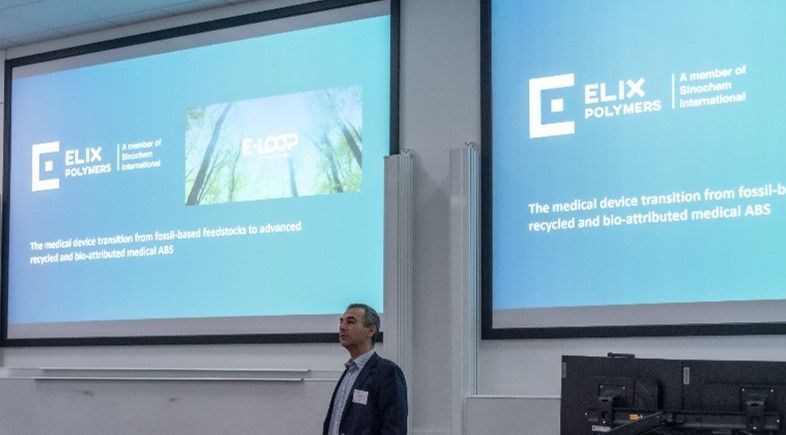
Our external speakers included:
Mr Luca Chiocia - Elix-Polymers – presented the challenges and opportunities for medical devices transition from fossil-based feedstock to advance bio-based plastics through adopting alternative feedstocks from advanced recycling of organic waste from a range of different sources.
Mr Kenneth Robertshaw - Office of Sustainability, Johnson & Johnson – provided an overview of European project DiCE (Digital Health in Circular Economy) aiming to address the issue of increasing digital health waste which may pose biological or chemical contamination, leading to its incineration with or without energy recovery. This means that these items are currently destroyed. DiCE project aims to identify solutions for safe recycling and retaining materials for circular use in such devices.
Mrs Heidi Barnard - Head of Sustainability in NHS Supply Chain – presented the considerations for sustainability in the procurement process and the efforts in building circularity into this process through a multifaceted approach that spans the entire supply chain. This may involve carefully selecting suppliers that prioritise sustainable practices, such as using renewable or recycled inputs, minimizing waste, and implementing energy-efficient manufacturing techniques. It was also highlighted that the procurement professionals must also consider the lifecycle of the products and services they are acquiring, ensuring that items can be easily maintained, repaired, or disassembled at the end of their useful life. Additionally, incorporating take-back programs, leasing models, and other circular business strategies can help organisations retain ownership and control of their resources, enabling them to recover and reintegrate materials back into the supply chain.
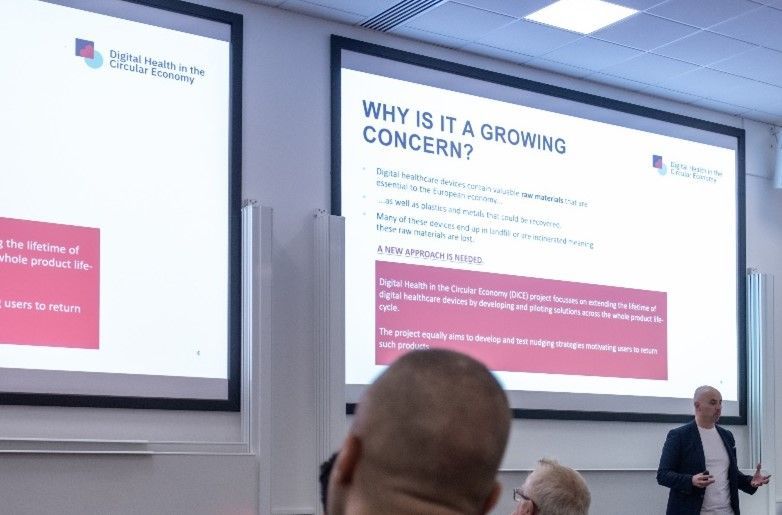
Professor Mathew Taylor - Director of York Health Economics Consortium – outlined how global decision makers must deal with the challenge of trading off the benefits of provision of ‘healthcare against the harm’ and provided an overview of current methods for measuring the environmental harm caused by medicines, the economic implications of these measurements, and a discussion around the public’s willingness to trade off their own health in order to reduce environmental harm from healthcare as well as other challenges in accounting for environmental impact in healthcare decision making.
Professor Mark Miodownik - UCL Professor of Materials & Society – presented an overview of ‘The Big Repair Project’ which is a nationwide research project about citizen maintenance and repair of home appliances and electronics and aims to help develop a ‘Right to Repair’ government policy and support the UK towards meeting important environmental targets. The many challenges in changing the mindset from ‘use and dispose’ to ‘repair and reuse’ were highlighted.
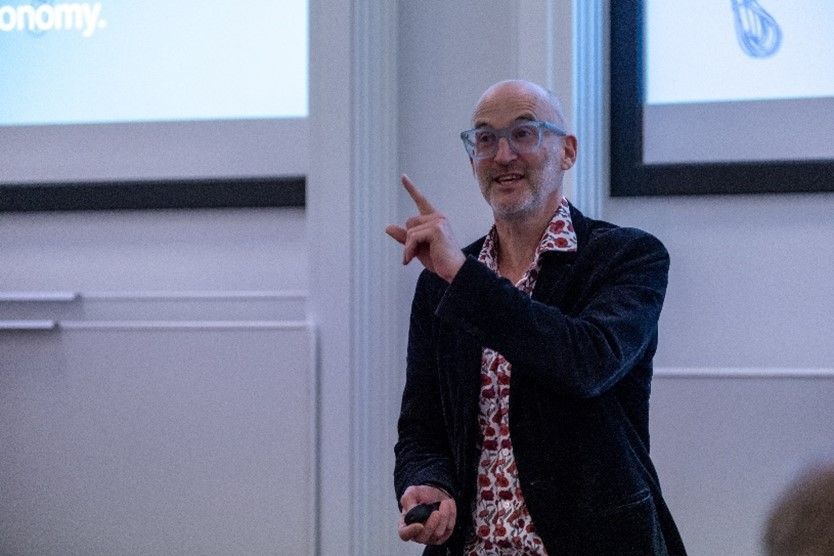
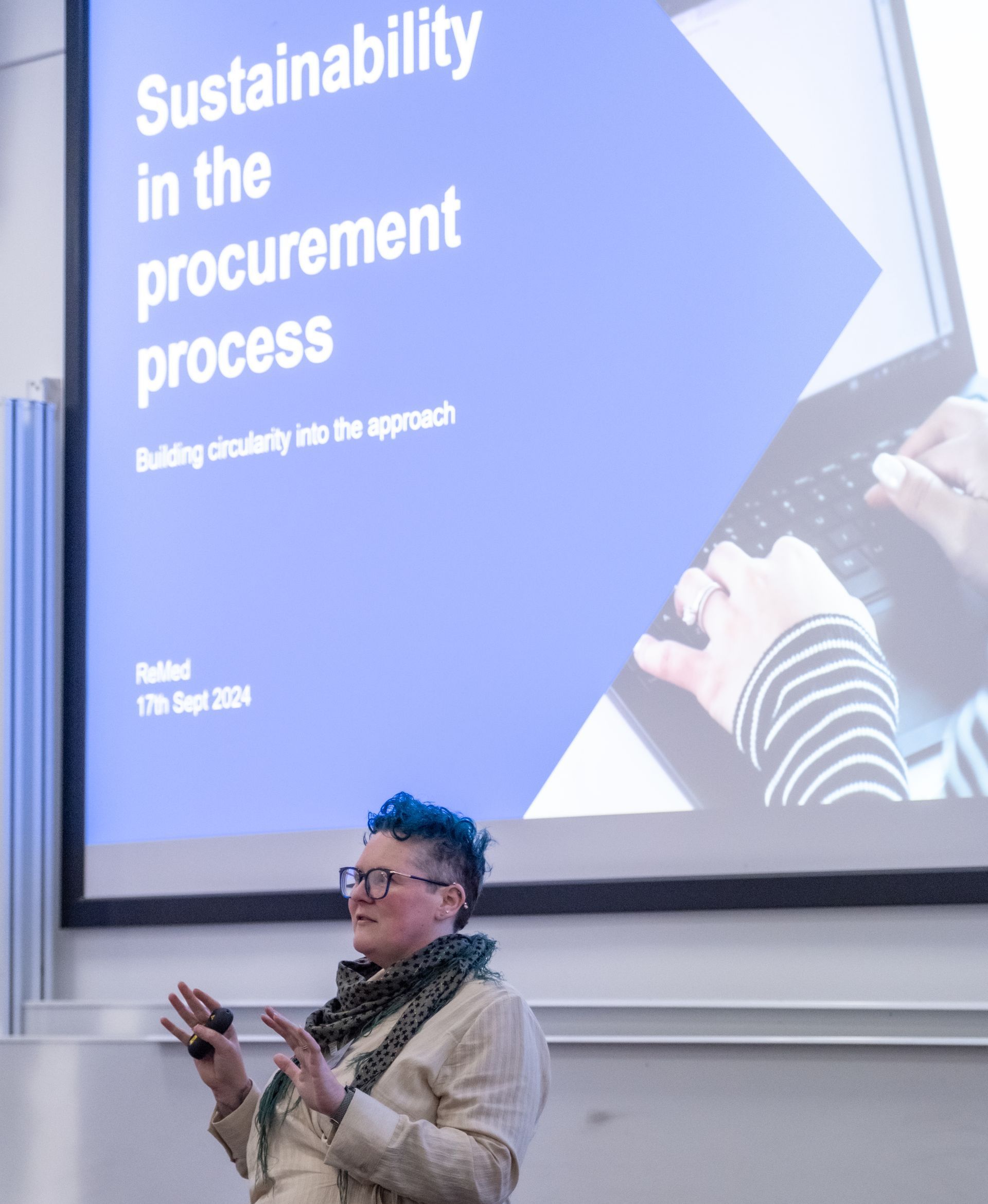
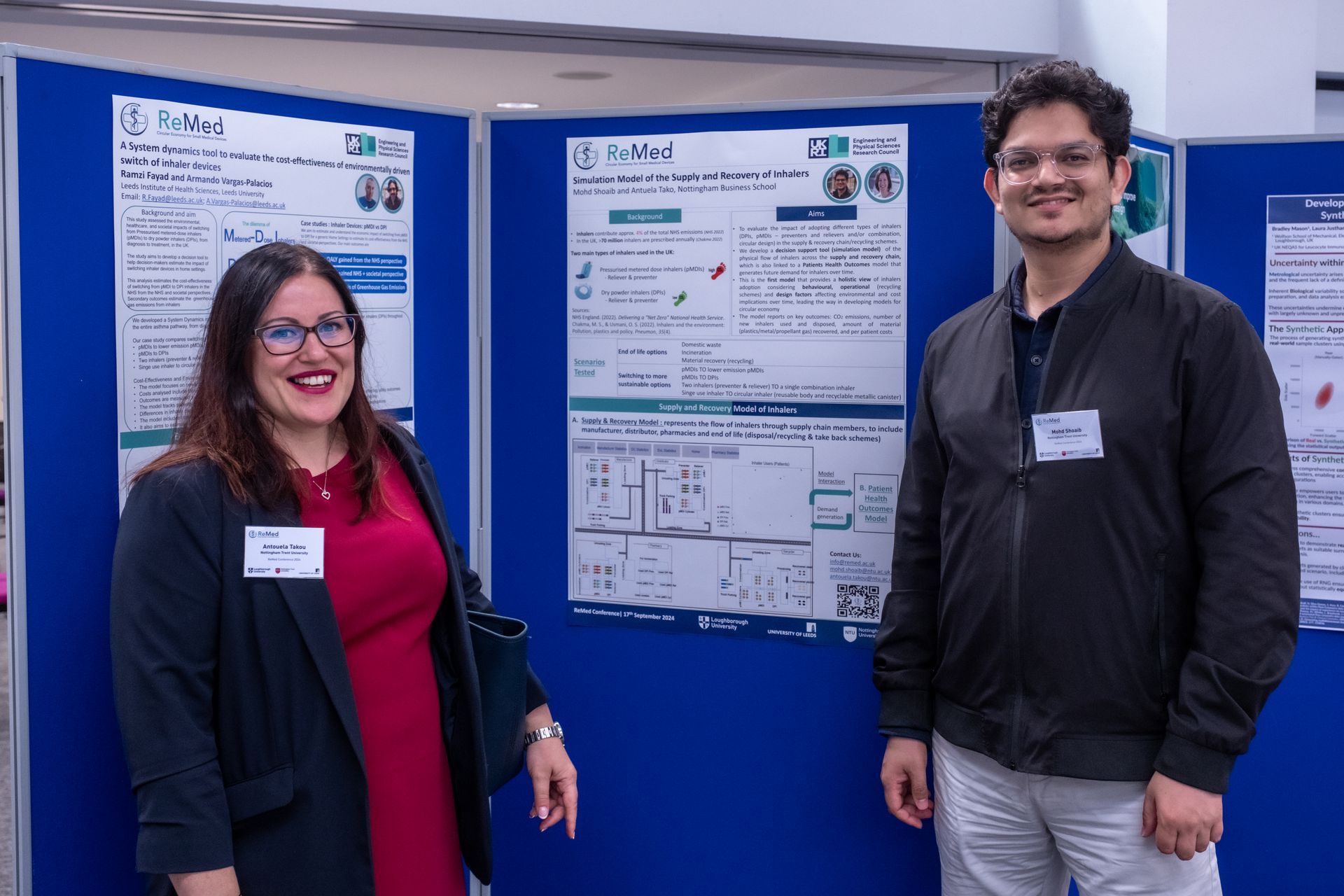
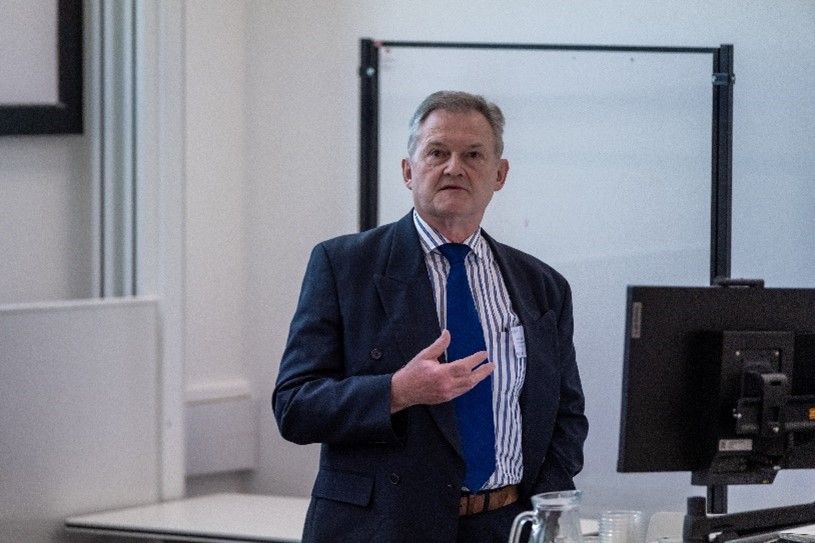
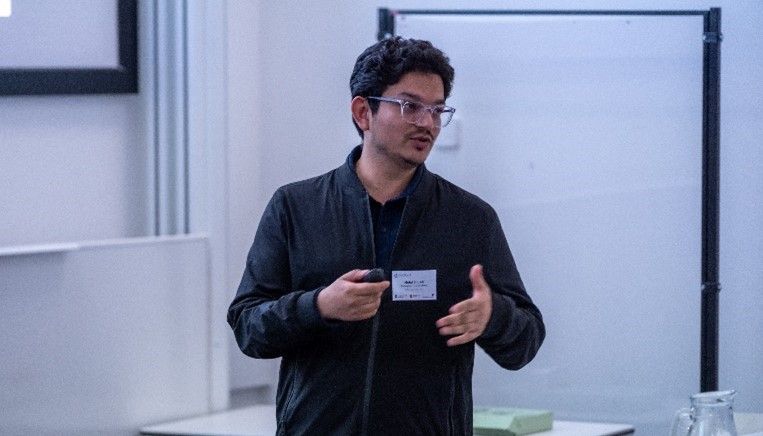
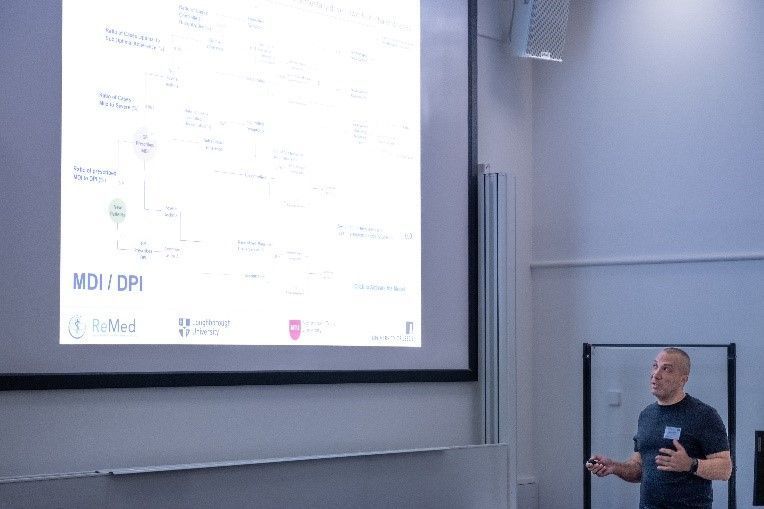
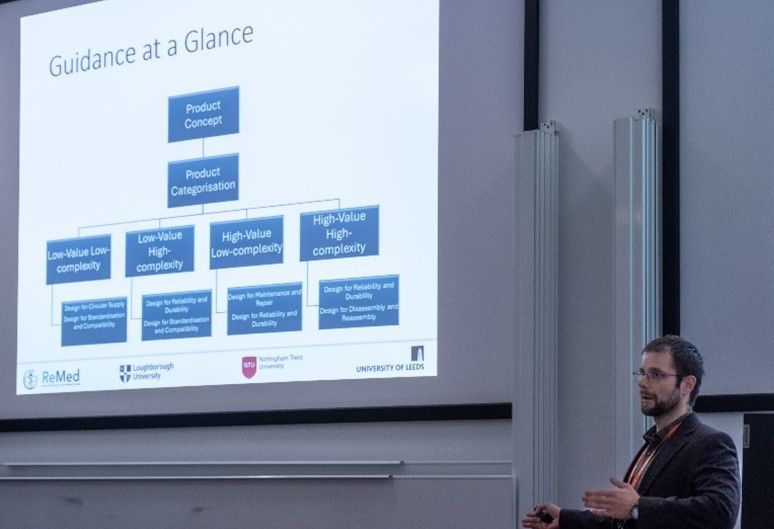
The progress within ReMed project was presented by:
Dr Denis Sleath – Senior Research Associate in Loughborough University – presented the results of work by ReMed team who are investigating the reprocessing and subsequent reuse of used medical devices along with the recovery and reuse of materials from these devices. Four different types of small medical devices, namely disposable plastic syringes, single use surgical and laparoscopic scissors, metered dose and dry powder inhalers plus blood glucose meters are being evaluated in detail. In addition, there are in depth studies of key topics such as disassembly, decontamination robotic sorting, dimensional integrity and material durability. The outcome is to identify barriers to circularity and make recommendations how to remove or work around these barriers.
Dr Mohd Shoaib – Research Associate in Nottingham Trent University (NTU) and Dr Ramzi Fayed – Research Associate in University of Leeds (UoL) – they jointly presented their research that aims to evaluate the supply chain impact of adopting different recycling schemes for various types of inhalers (pMDIs and lower emission alternatives, DPIs, combined reliever and treatment). A decision support tool in the form of a simulation model has been developed at NTU that represents the physical flow of inhalers across the supply and recovery chains, linked to a Patients Health Outcome model which is developed at UoL. These models take a holistic approach to considering behavioural, operational (recycling schemes), and design factors in the adoption and supply of inhalers and their impact on environmental, cost and patient health outcomes, offering key industry insights for the implementation of circular economy of Inhalers.
Dr Nathaniel Kaill – Research Associate in Loughborough University – highlighted that the design intent and conceptualisation of a new device has a decisive impact on a product’s ability to be incorporated into the circular economy, and therefore, it is imperative that circular use is considered from the outset rather than retrospectively applied. To aid this the ReMed team has created guidance for circular design for small medical devices. A number of worked examples of the application of the first iteration of the circular design guidance were presented.
Dr Zahrina Mardina – Research Associate in University of Leeds – highlighted that material selection is crucial in determining the circularity of medical devices. Typically, material selection focuses on cost, performance, and regulatory requirements but rarely on end-of-life management or circularity. The ReMed team has created a Multicriteria Decision Support Tool, in collaboration with expert stakeholders, for material selection in medical devices. This promotes circularity principles and uses evaluation criteria spanning the full device life cycle. A case study was used to demonstrate the applicability of the proposed tool to select materials for the blades and handle of a reusable laparoscopic scissors.
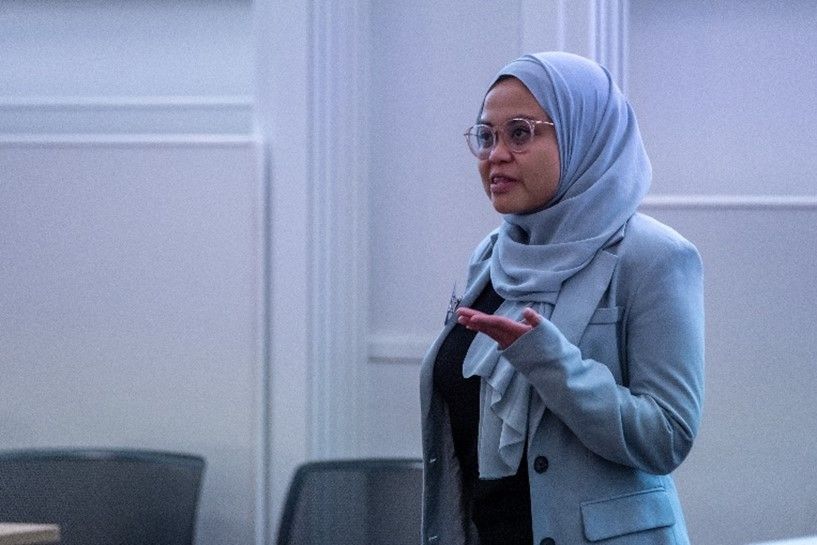
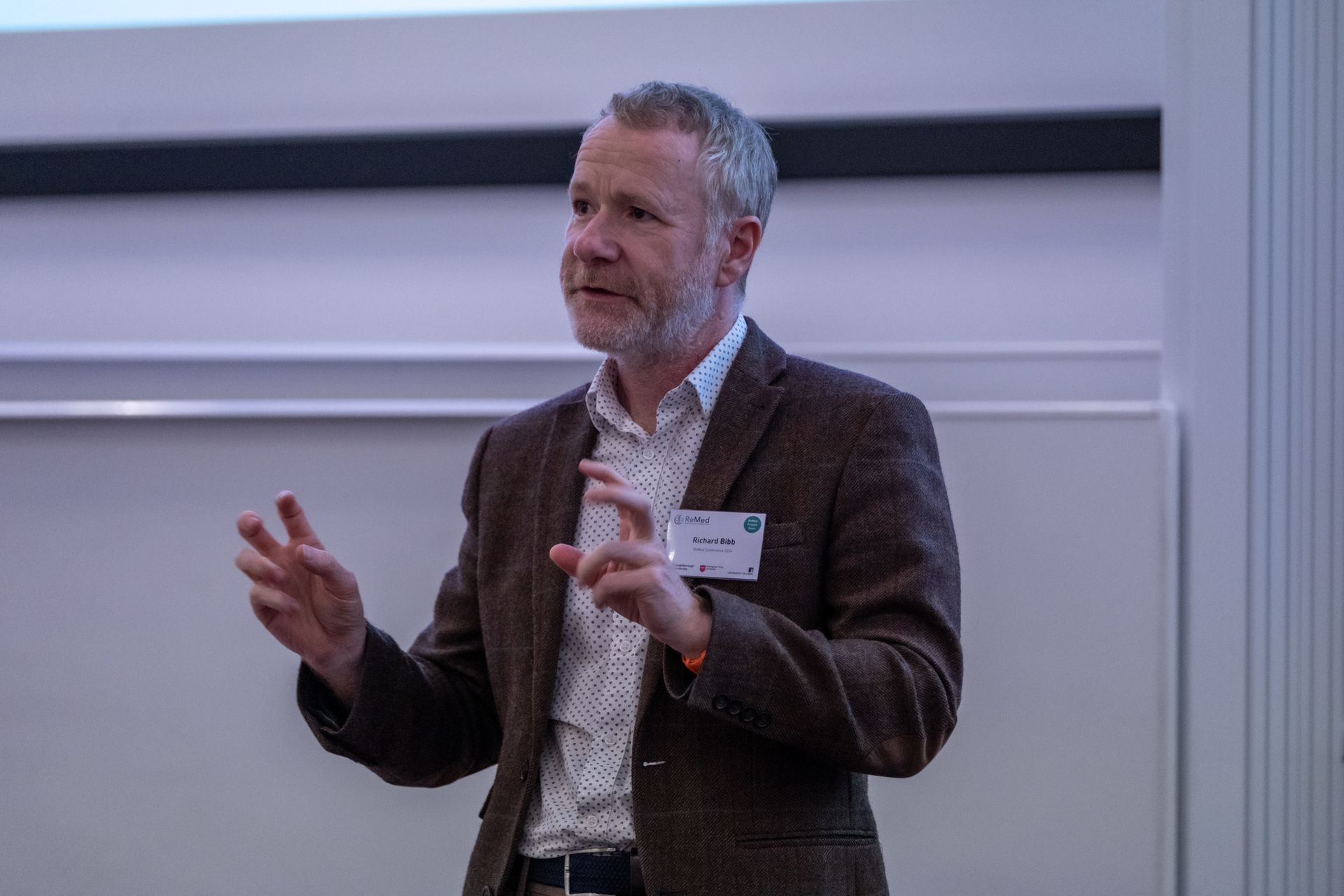
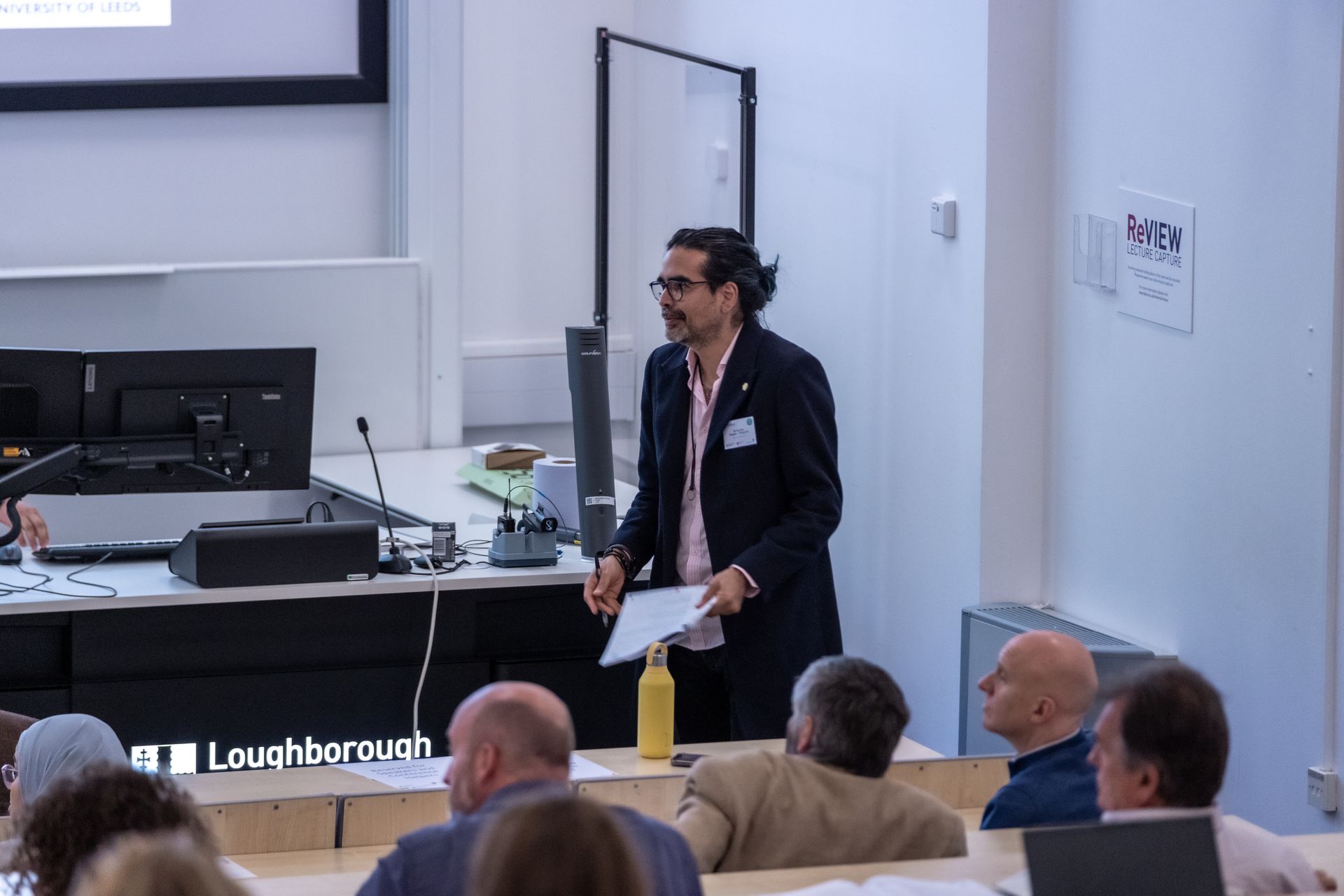
"The ReMed conference was a really good event; great speakers, organisation and content"
Paul Broadberry, Vanguard Medical Manufacturing
The conference programme also included a Panel Discussion chaired by Professor Peter Culmer (University of Leeds) and was entitled ‘How is the circular economy relevant to the NHS and its ambitions to transition towards a NetZero health service’. The panel consisted of 5 experts from across the circular economy and healthcare sector, namely:
1) Wendy Rayner, Head Circular Economy Programme - NHS Scotland,
2) Tsanko Dimov, Senior Net Zero Delivery Manager - NHS England,
3) Keith Gray, Academic Content Lead for the GIRFT programme - NHS England),
4) Mathew Davidson, Director of the Centre for Sustainable Chemical Technologies, University Bath, and
5) Guy King, Contract Manager - Shapsmart.
When asked what the panel thought would be the single most impactful action for making the transition to a circular economy, the answers included:
· Eliminate unnecessary waste – we can recycle and reuse thing but not using something in the first place is more impactful.
· Supporting decisions across the value chain of medical devices using change performance metrics which include sustainability.
· Educating and upskilling everyone across the workforce; sustainability should be the responsibility of everyone. There is unique opportunity where clinicians, academics, research bodies and industry all have recognised a need to act in consort.
· Long-term funding in research and innovation programmes and developing long-term circular business models.
The conference hosted a vibrant exhibition and poster session featuring companies and organisations from across the MedTech and healthcare sectors, including Airways Medical, Grace Cares Pre-Loved Care Equipment, Elix Polymers, NIHR, pd-m Design, Springboard, Cambridge Consultants, and Sharpsmart, and Universities of Bath and Bournemouth.
The posters from external presenters alongside ReMed researchers showcased the research that is being carried out to aid with transition to circular use of medical devices.
The winning poster prize went to Grace Cares Pre-Loved Care Equipment, which is an award-winning, not-for-profit organisation that rescues care equipment from landfill and offer it to the public, NHS, and care sector at less than half its original price. Any profits generated will be used to fund hardship grants and support for care workers and older people nationwide.
The conference was closed by Prof. Rahimifard, acting as the Conference Chair, who summarised the day by saying:
‘Today’s presentations and discussions have highlighted some of the significant challenges but also many potential economic, societal and environmental benefits of a circular use of medical devices. It has also become clearly apparent that a multistakeholder, collaborative initiative based on a transdisciplinary approach is the only way to accelerate the transition towards a circular economy within the healthcare sector and to improve long-term resilience of supply of medical devices.
The ReMed project team looks forward to collaborating not only with national but also international organisations to build a global synergy for provision of equitable and affordable access to healthcare worldwide’.
Resources from the conference, including the final programme, presentation slides and posters can be accessed by clicking the link below:
